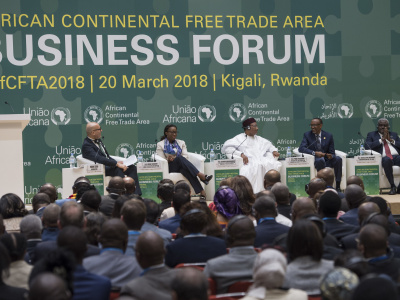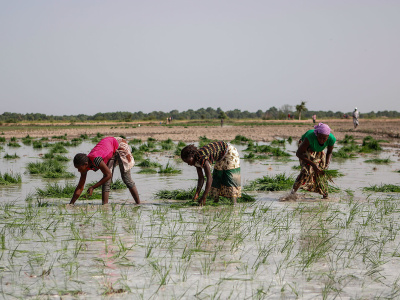
A system, not an error: Informal cross-border trade in West Africa
Poorva Karkare, Bruce Byiers, Philomena Apiko and ENDA CACID’s Mounirou Kane uncover some of the complexities of informal cross-border trade in West Africa, to draw implications for external partners and policymakers working to ‘address’ informal trade in the region.
This page is also available in french.
Summary
A large part of intra-African trade is small-scale, cross-border, unrecorded and informal. The policy relevance of informal cross-border trade (ICBT) is increasingly appreciated, especially given the prominent role played by women. However, there is a lack of clarity on what aspect of ICBT external support programmes seek to address and why.
This study examines the ‘problem’ of ICBT and how to ‘address’ it. It presents the separate and combined perspectives of traders, the State and border agents, to highlight the complex settings and idiosyncratic outcomes of ICBT. It shows that ICBT is less of an anomaly than formal trade policy would suggest. It results from interactions along a broad spectrum between traders and border agents and is part of a broader system. The visible aspects of ICBT that seem to hinder formalisation are the tip of the iceberg, with an array of less visible but important factors and relationships that perpetuate the practice.
We conclude that attempts to target ICBT directly – for instance through building capacity and simplifying complex border procedures – may go some way in altering existing dynamics, but seem unlikely to alter incentives for informal trade when up against such deeply embedded relational structures. Given the specific contextual factors that shape ICBT, there is a need for border-specific approaches since they can vary from one border to the other. More indirect approaches might focus on creating wider economic alternatives, though over a longer time horizon.






